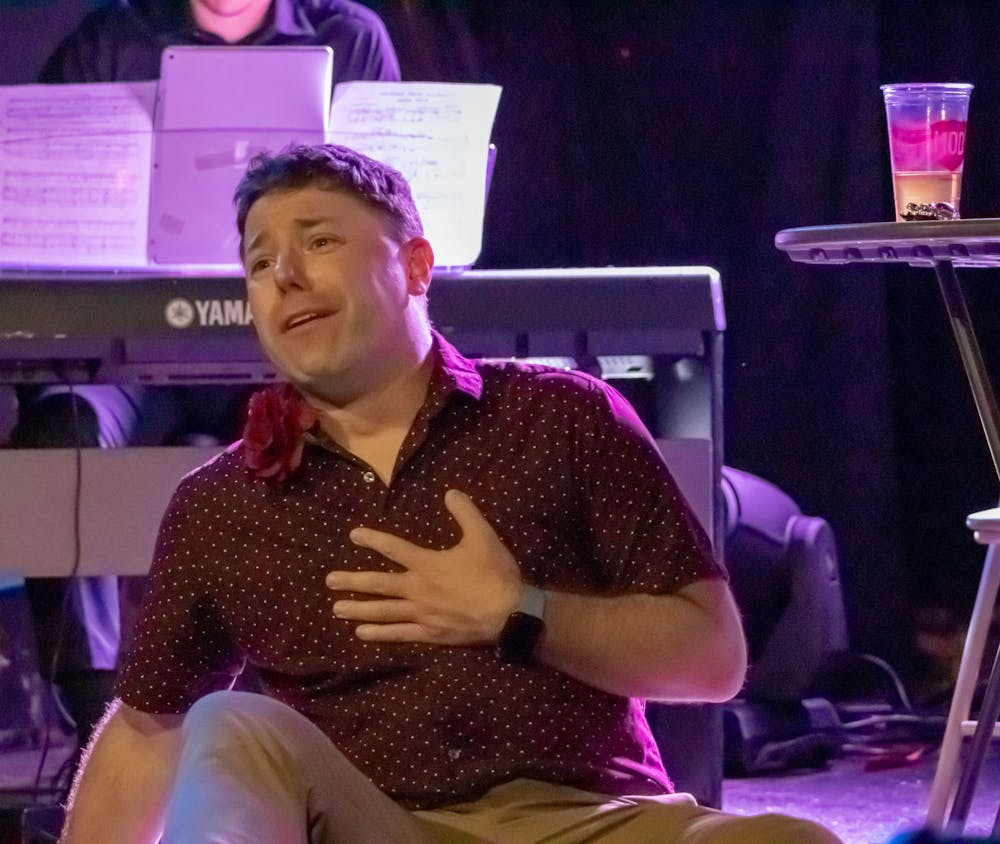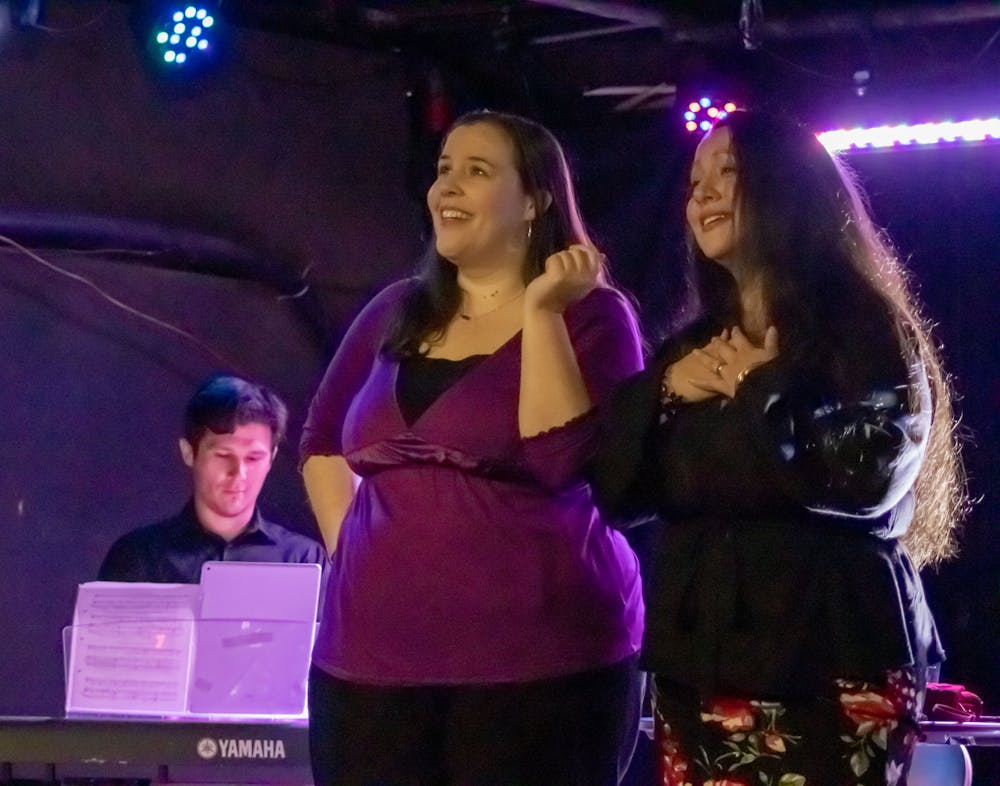The Columbia Operatic Laboratory is attempting to use it's new non-traditional opera "Four Singers Walk Into A Bar" as a means to expand the genre in the Columbia community and educate audiences about opera beyond their preconceived notions.
"We all have a single story of what we think opera is, and we don't really change that unless we get to experience what it is," Christopher Lopez-Moore, the tenor in "Four Singers Walk Into A Bar," said.
The new opera follows the story of four friends at a bar engaging in everyday conversation and social situations like trying to pick up a date. These experiences are accompanied by common opera compositions mixed together in a “jukebox” format to drive the story.
“'Four Singers Walk Into A Bar' really fits in line with our overall mission and goal to go out into the community and perform in unconventional venues,” Jerryana Birch-Bibiloni, the interim president and marketing director for the Columbia Operatic Laboratory, said.
Birch-Bibiloni said that by straying away from traditional “Phantom of the Opera”-style venues, opera can feel less elitist and more accessible to the people of Columbia who are interested in the local opera scene but don't know where to start.
“That could make it feel less austere to people that maybe are too intimidated to just take the plunge and go see something from Opera Carolina or Opera at USC if they've never done it before,” Joseph Birch, a member of the board and the secretary for the Columbia Operatic Laboratory, said.
According to Birch-Bibiloni and Birch, to ease new listeners into the opera scene, the Columbia Operatic Laboratory uses more laid-back venues such as New Brookland Tavern, which is more commonly associated with grunge, indie and pop artists or even comedy shows.
"We went into a bar that you could tell when you walked in, it was not for an opera. And we brought it to people who didn't know anything about (opera)," Lopez-Moore said. "Once they saw that we were talking about things that we actually go through as people, they were drawn into it."
This new approach for opera goes beyond the venue. According to Birch-Bibiloni and Birch, the nontraditional style of "Four Singers Walk Into A Bar" also includes subjective narration that translates German and Italian compositions into English commentary, tailoring the opera scene for a local audience.
“One of the special features and almost tricks is that we have a narrator/translator throughout the entire show," Birch-Bibiloni said. "The narrator also might add some commentary that's a little bit more biased and maybe a little bit more social in nature. One could say it's a step further than poetic. So you have people that are going back and forth in the common vernacular. They're saying things that you would text your friends instead of what the direct translation of the Italian would be."
Birch-Bibiloni and Birch said the organization is passionate about sticking to its goal of straying from the common opera stereotypes to expand accessibility and understanding of the art form, but they are aware of the roots and core aspects of opera and wish to incorporate these classic features to simultaneously educate new opera fans and engage with knowledgeable opera lovers.
“Opera as an art form is primarily a storytelling art form. ... It is storytelling through musical performance," Birch said. "The composer did that for the new show because it's made up of arias and pieces from traditional great opera. If you're an opera singer, you've heard (these) a million times. You've studied it. You know these are Mozart and Puccini and Verdi, taken out of their original context and placed into a new story.”
Beyond the inclusion of traditional music in the show's composition, "Four Singers Walk Into A Bar" also tries to utilize common opera tropes in a comical way.

“You explore all of the tropes and the stereotypes and the clichés that are based around the point parts and the characters that they would traditionally play." Birch said. "They play on the trope in a way that, to people who are in the know and people who like opera, they get all of the jokes. ... To people who are being introduced to it for the first time, though, it is a subtly educational experience."
By introducing these common opera tropes and mixing them with non-traditional opera styles, Birch-Bibiloni said the organization is looking forward to its future and engaging with local individuals who wish to begin their own opera journey.
“I think it's a really great merger of the drama of opera, the suspense of opera, the tropes of opera, but in a way that people are like, 'Oh, this is representative of the community that I'm performing with, the people that are here with me.' There are jokes that are specific to Columbia natives,” Birch-Bibiloni said.
Lopez-Moore said that among the Columbia Operatic Laboratory staff, there's an earnest love and passion for the art of opera and a desire to share this passion with anyone in the local community who wants to listen.
“I want to break (the idea) that it's not normal, opera is not normal. Opera is normal. It's a form of music just like the music you listen to on the radio today," Lopez-Moore said. "What I want people to take away from the show, in general, is just opera is important, and opera is. We basically live in an opera."
Regardless of opera experience level, anyone wanting to see "Four Singers Walk Into a Bar" can visit The Living Room at 7 p.m. on Friday, March 31, or the Columbia Music Festival Association at 7 p.m. on Saturday, April 1.
Correction: A previous version of this article misidentified Christopher Lopez-Moore and Jerryana Birch-Bibiloni in the body of the text and Maria Beery in the photo caption. The article has been updated to correct this mistake.

